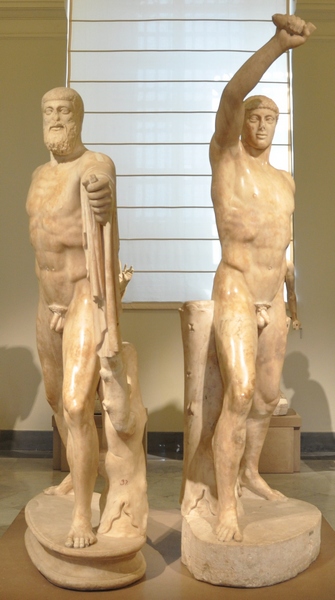 In the beginning years of this blog, I published a series of articles called “Meditations on Democracy and Dictatorship” which are still regularly read today, and have had some influence. They still elicit inquiries from remote corners of the globe. They are now buried in the back pages of the blog, so I’m moving them up the chronological counter so they can have another round of visibility, especially (I hope) with younger readers. I am re-posting them in their original sequence over part of 2018. Some references in these “meditations” will date them to 2007–2008, when they were written. But I will leave them un-retouched, though I may occasionally append some retrospective notes. Mostly, they deal with abstract issues that do not need updating.
In the beginning years of this blog, I published a series of articles called “Meditations on Democracy and Dictatorship” which are still regularly read today, and have had some influence. They still elicit inquiries from remote corners of the globe. They are now buried in the back pages of the blog, so I’m moving them up the chronological counter so they can have another round of visibility, especially (I hope) with younger readers. I am re-posting them in their original sequence over part of 2018. Some references in these “meditations” will date them to 2007–2008, when they were written. But I will leave them un-retouched, though I may occasionally append some retrospective notes. Mostly, they deal with abstract issues that do not need updating.

Harmodius and Aristogeiton, the gay couple whom the Athenians regarded as the founders of their democracy
All philosophies stand on choices that cannot be justified by proof. Any amateur Socrates can demonstrate that I can’t prove that two and two are four, or that freedom is desirable, or even that I exist. Ultimately, ideas, no matter how passionately held, rest on assumptions that cannot be known with absolute certainty. It does not follow from this that we should avoid acting on significant assumptions, or that we should abandon the analysis of ideas. If I’m standing in the middle of the street, and see a twelve-ton truck hurtling in my direction, I don’t stand there, paralyzed by epistemological uncertainty. I jump out of its way. Later, seated on a comfortable couch, with a cold beer in my hand, I might indulge in the luxury of reflecting that the truck may have been an illusion, or that I cannot prove with certainty that being hit by a truck is worse than not being hit by a truck. All of us must choose our basic assumptions, either in a conscious process, guided by reason, or unconsciously.
This is a meditation on democracy, and democracy only becomes a coherent idea when it rests on the assumption that human beings have rights. This, in turn, rests on the assumption that there is a moral dimension to the universe. Outside of these assumptions, political thought becomes arbitrary. If individual human beings have no rights, then whatever happens is self-sufficiently justified, and any state of affairs that human beings find themselves in is as desirable as any other. Effectively, if there is no moral dimension to the universe, then it is a matter of indifference what happens. Events just come to pass ― say, the Holocaust, or the Slave Trade, or Abu Graib ― and there is no point in discussing them. It is pointless to seek justice or defy injustice, because the very idea of justice depends on the assumption of a morality that rests upon something more substantial than custom or whim. In the absence of moral choice, people seek some sense of order in human affairs through some amoral organizing principle. Loyalty to a group, obedience to authority, or the familiarity of ritual become substitutes for ethical conscience. Read more »